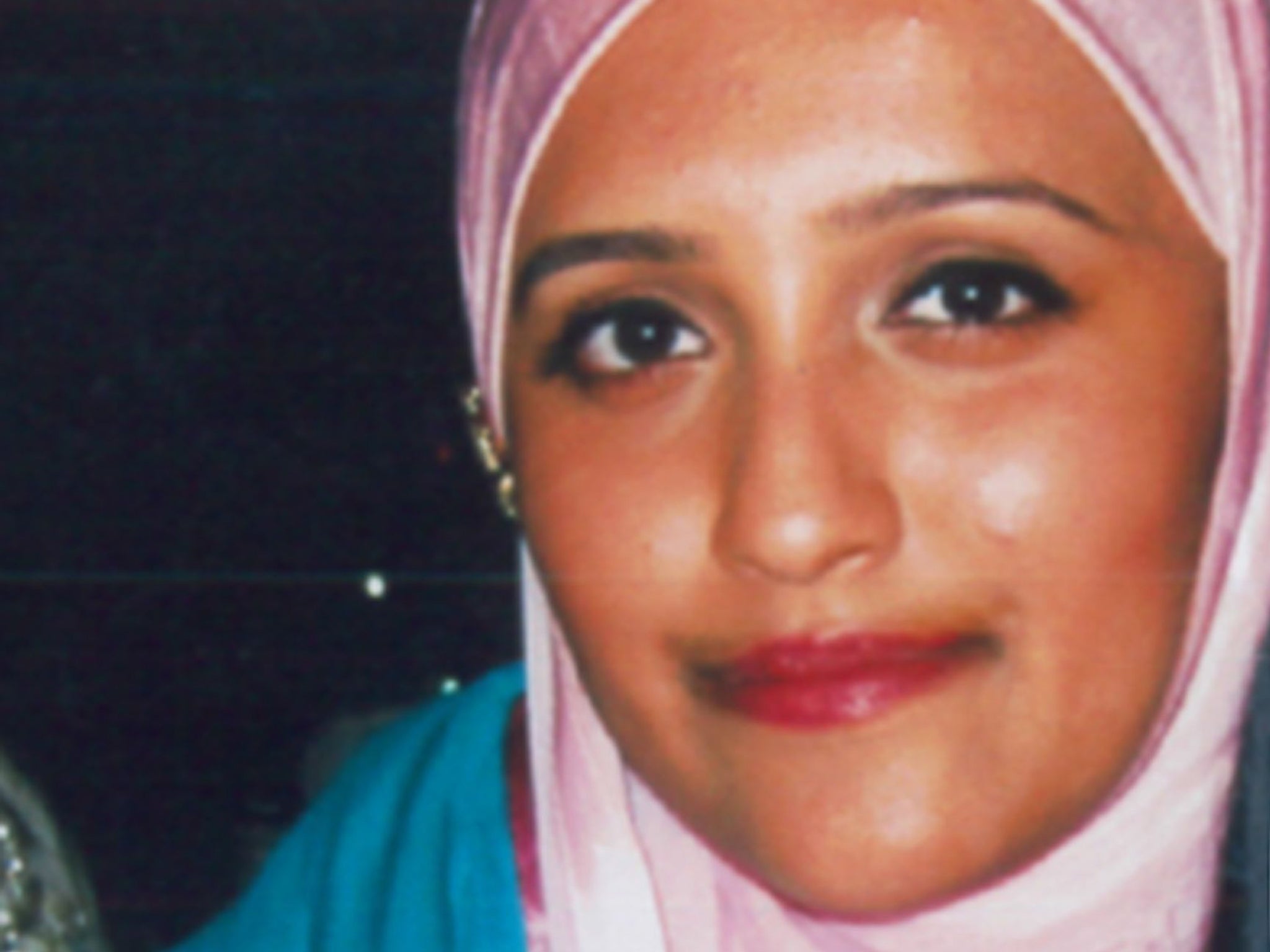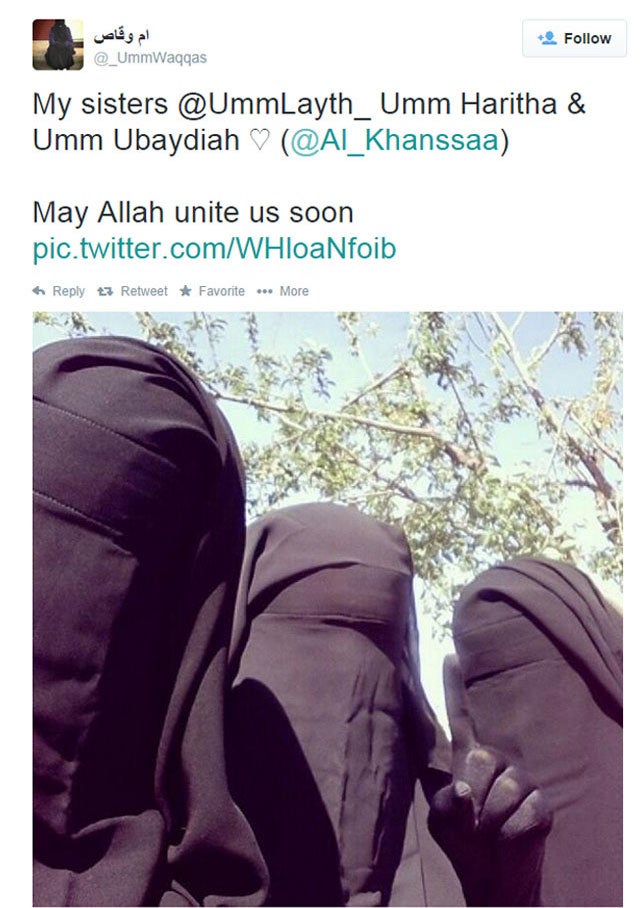Why are British women leaving the UK to join Isis in Iraq and Syria?
It might seem hard to believe, but there are some women who see the Caliphate as liberating

After reports of British women travelling to Syria to join Islamic State (IS), stories of female foreign fighters have been spreading like wildfire.
In July of this year the story of the 16-year-old twins from Manchester, Salma and Zahra Halane, hit the headlines, detailing the girls’ journey into Turkey and across the Syrian border to join their brother, a suspected foreign fighter with IS.
Muslim convert, Khadijar Dare, 25, and mother-of-two from Lewisham also travelled to join IS earlier this year, tweeting her hopes of becoming the first female hostage killer. And just last week it was reported that Aqsa Mahmood, a 20-year-old former private school pupil from Glasgow, had travelled to Syria in 2013 to join the ranks of IS, calling for Muslim men to carry out home-grown terrorist attacks from her Twitter feed.
Although the media and the public seem shocked at the radicalisation of young women - to the extent that they'd join IS - it shouldn’t come as a surprise. Indeed, there is no reason to think that women are less likely to become radicalised than men.
The same extremist narratives and propaganda that have lured a number of male foreign fighters to travel abroad have also been tailored for female audiences. The sense of helping in a humanitarian and "Muslim" cause, the allure of travelling to a distant land to be part of a new "utopian" state, and supporting jihadists who are willing to become martyrs – all while fulfilling a "duty" to God – are all just as compelling to female audiences. For some women, becoming the wife of a jihadist also plays into romanticised notions of serving a "real man" who is fighting for the ultimate cause: the “caliphate”.
It might seem like a contradiction in terms, but for these reasons, some women will find the idea of travelling to Iraq and Syria liberating.
It was reported some time ago – before most people had heard of IS – that a small number of women are being used in women-only brigades in Raqqa to assist in exposing men who might be disguised as women in order to cross IS checkpoints. Women recruited for these security roles must be unmarried, between the ages of 18 and 25, and are given a monthly wage for their assistance.
However, despite rumours of female jihadists taking part in violent acts of terror, Islamic State is not utilizing women for terror. With strict Sharia law being enforced through IS territories, a woman’s role is severely limited, with their primary duties restricted to their role as wife and mother.

Similar to their male counterparts, though, some women who have travelled to become wives of jihadists are sharing their stories and daily lives through Twitter and other social media platforms. One British female, thought to be living in IS territory as a wife of a jihadist, has shared travel tips and a packing guide for others planning their own journey. Advice includes packing light, minimising risks while travelling and how to dress as an inconspicuous traveller.
We must refrain from typecasting what we target as a "typical" extremist and avoid assuming that the pathway to radicalisation has any one trigger. Recruitment is taking place through both offline and online means, targeting a range of vulnerable individuals. Counter-narratives need to be equally diverse in order to quell the allure of extremist propaganda, and they should not have a gender bias.
Join our commenting forum
Join thought-provoking conversations, follow other Independent readers and see their replies
Comments
Bookmark popover
Removed from bookmarks